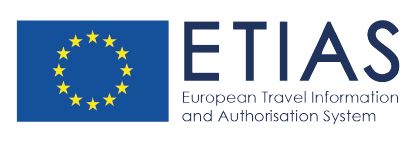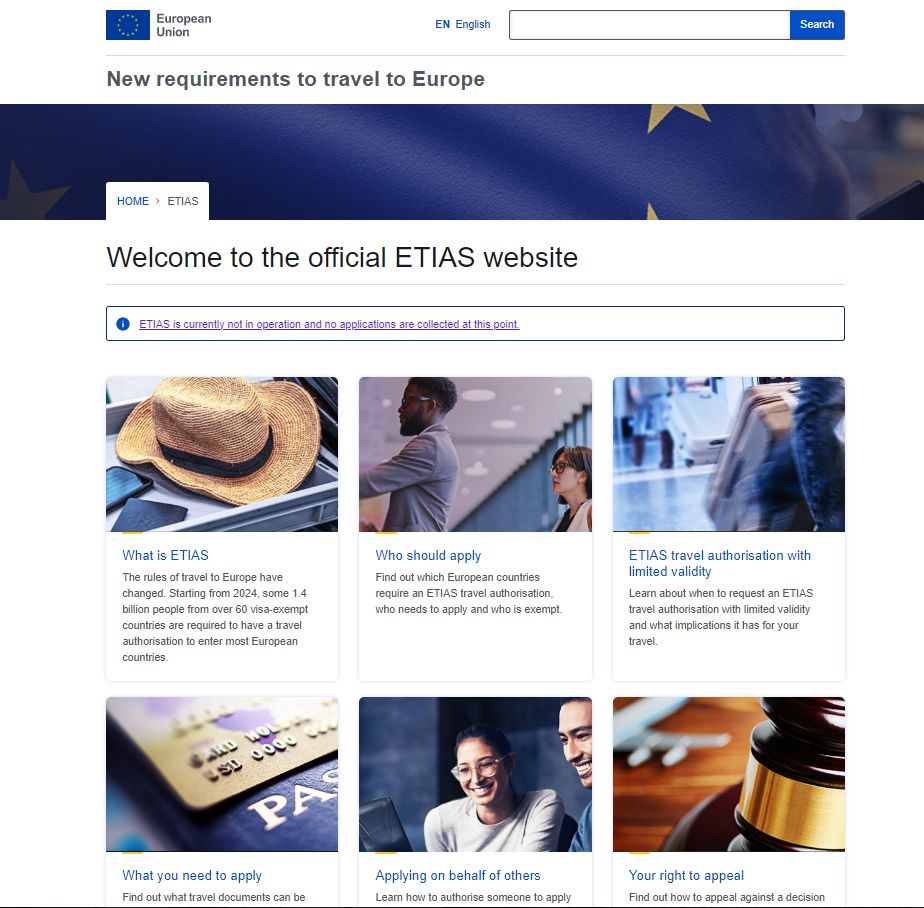ETIAS – European Travel Information and Authorisation System
 The rules for visa-free travel to most European countries will change. ETIAS travel authorisation is a new entry requirement for the nationals of around 60 visa-exempt countries travelling to 30 European countries. Similar travel authorisations for visa-exempt nationals are currently implemented by the US, Canada and Australia as well as other countries.
The rules for visa-free travel to most European countries will change. ETIAS travel authorisation is a new entry requirement for the nationals of around 60 visa-exempt countries travelling to 30 European countries. Similar travel authorisations for visa-exempt nationals are currently implemented by the US, Canada and Australia as well as other countries.
A new entry requirement enters into force in 2026The rules for visa-free travel to Europe will change next year. Starting from second half of 2026, travellers from over 60 countries will need to apply for an ETIAS travel authorisation. The application processThe application process will be quick and easy and it will cost EUR 20. You can apply using the official ETIAS website or the official ETIAS mobile app. |
ETIAS travel authorisation only allows short-term stays
Air, sea and coach carriers will be required to the check that travellers possess a valid ETIAS travel authorisation before boarding. That is why travellers from around 60 visa-free countries will need to apply for an ETIAS travel authorisation before they start their trip to Europe.
ETIAS is for short-term stays: it allows visa-exempt travellers to remain in the 30 European countries requiring ETIAS for up to 90 days within any 180-day period. It is valid for three years or until the passport used in the application expires, whichever comes first.
European countries requiring ETIAS
Find out which European countries require an ETIAS travel authorisation, who needs to apply and who is exempt: European countries requiring ETIAS
Who needs an ETIAS travel authorisation
Nationals of which visa-exempt countries need to apply for an ETIAS travel authorisation? Check the list of those countries
ETIAS is not a visa
Having an ETIAS travel authorisation only allows travellers to enter and remain on the territory of the European countries requiring ETIAS for a short-term stay. ETIAS does not give the right to study long-term or to work in these countries. Nationals of visa-exempt countries who plan to stay in a European country requiring ETIAS for a longer period, will most likely need a long-term visa.
Travellers who already have a valid visa do not need an ETIAS travel authorisation.
 Why ETIAS?
Why ETIAS?
ETIAS was developed to maintain a high level of internal security of the European Union, while ensuring smooth border crossings of travellers.
Currently, border authorities in Europe assess whether travellers pose a security, public health, or irregular immigration risk when they have already arrived at the border. ETIAS will allow for the assessment to be done before the travellers start their trip, making their travel easier and more convenient.
 There is only one official ETIAS website
There is only one official ETIAS website
There is only one official ETIAS website. Currently the website provides information to travellers about the application process, appeals and other relevant topics. Once ETIAS is launched, applications for the travel authorisation will be submitted through the website.
Beware of scammers!
Currently there are at least around 20 unofficial ETIAS websites online providing information about the rules and requirements related to ETIAS.
While the ETIAS regulation does allow commercial intermediaries to apply for ETIAS on behalf of others, there is a risk related to the third-party websites. While some of these websites are run by genuine commercial intermediaries, others may be hosted by people with dubious intentions. The unofficial websites can be scammers who will seek to financially profit from ETIAS applicants and may misuse the applicants’ personal data and credit card details.Travellers will have the possibility to report abuse using the official ETIAS website.
The official ETIAS website is LIVE. Check www.europa.eu/etias to know more about the new European travel authorisation.
 ETIAS activities are funded from the Border Management and Visa Instrument (BMVI), which is part of the Integrated Border Management Fund (IBMF) in the programming period 2021–2027.
ETIAS activities are funded from the Border Management and Visa Instrument (BMVI), which is part of the Integrated Border Management Fund (IBMF) in the programming period 2021–2027.


